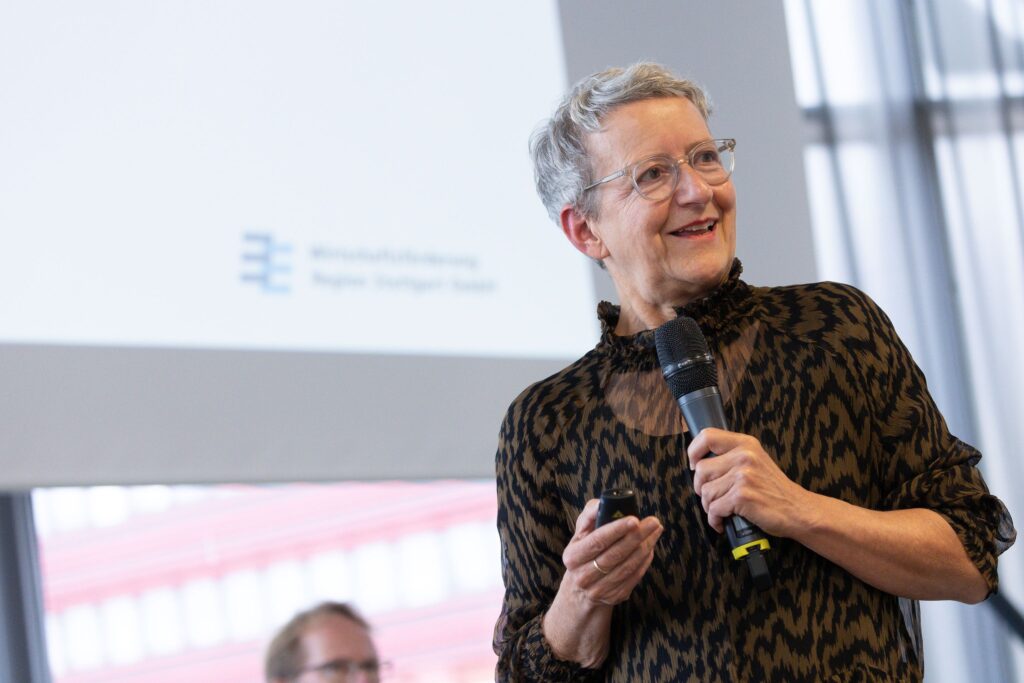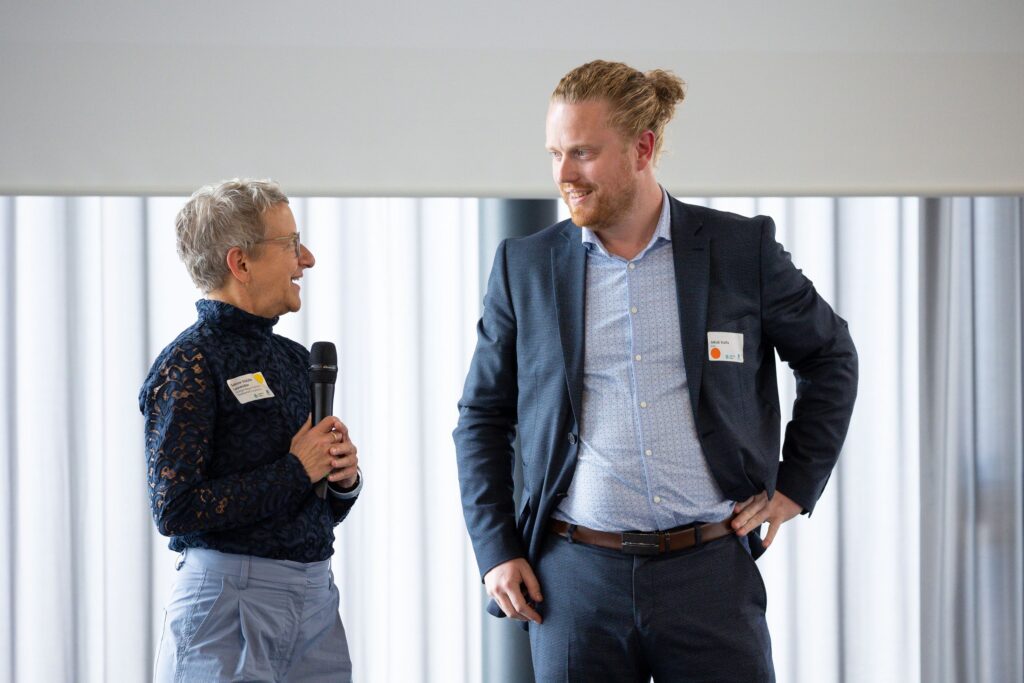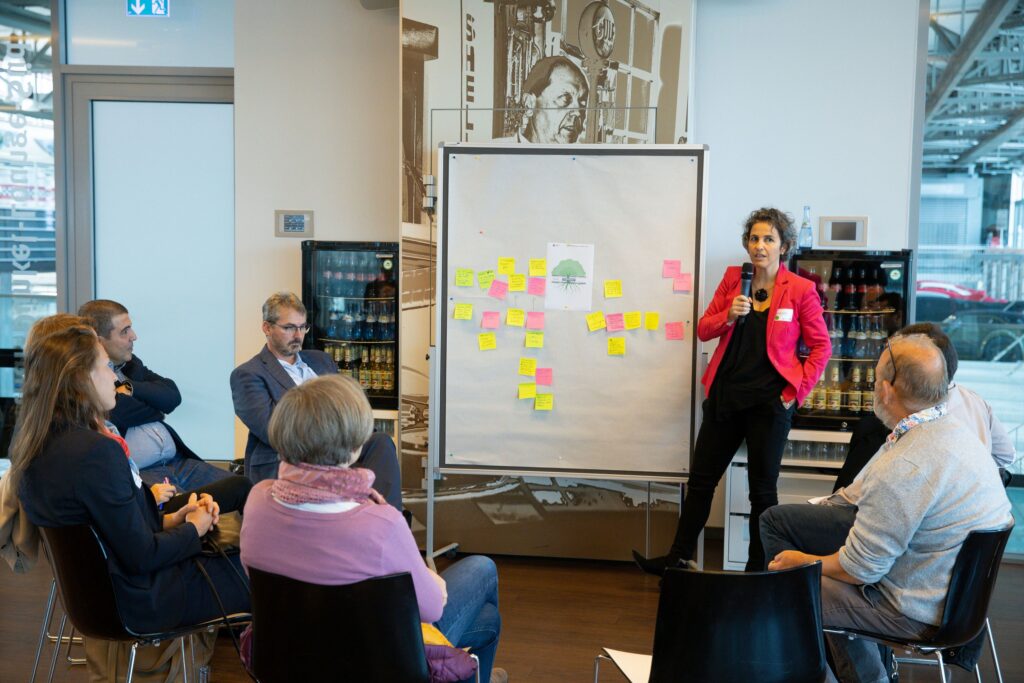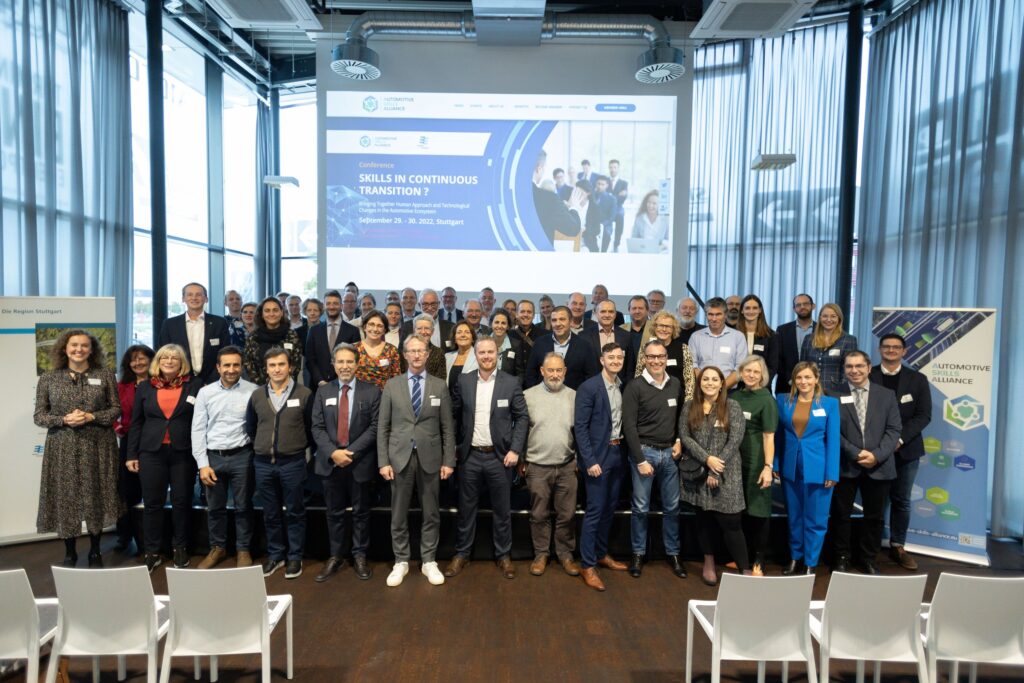At the end of September, the ASA, supported by the Stuttgart region, organized a conference “Skills in continuous transition? Bringing together human approach and technological changes in the automotive ecosystem”. The key outcome of the conference was that the transformation of the automotive ecosystem needs to happen with people at the center. In order to understand how different stakeholders can benefit from the conference and similar events, we talked to Dr Sabine Stützle-Leinmüller, head of the Skilled Labor Division of the Stuttgart Region Economic Development Corporation, about her experiences.

In the annual report on the State of Regions and Cities, the region of Stuttgart is named as a best-practice example of a region with strong networks across the automotive ecosystem. How did you manage to achieve this and what would you advise other regions who want to build such networks?
We have a long tradition of joining forces in the Stuttgart Region. We also have a tradition of creating networks of different stakeholders which helps us develop a shared view on regional trends and on our strategy for the region. Consequently we have developed a tradition of reporting, and the commitment to initiate strategic projects with our partners. One of those key projects is our platform Q-Guide Region Stuttgart facilitating the up- and reskilling of the workforce. In our case, multiple heterogeneous groups have been brought together by a common mentality, and a strong will to cooperate for the common goal of raising re- and upskilling activities in companies.

What are your reflections on the conference in Stuttgart? What are the key take-aways for you personally?
When thinking about how to go forward, we have to ask ourselves some key questions. For example, what direction do we want to move in as a region? What competencies do companies need to develop in order to achieve that? Then, we need to answer the question “Who do we need, at what time, in which job and in what numbers?” For this strategic approach, it is essential to bring together different stakeholders. Companies benefit from having an integrated approach that gives them time to get all employees on board. It is a process of change, in which they have to realize the need for transparency, good leadership, and the necessity to ask “Why should I change my competencies, why should I learn?”
Luckily the participants already had a good understanding of why it’s important to learn and develop. Therefore, we were able to focus on the next step, which is discussing how to learn. It was an opportunity to exchange views with partners across Europe and realize that we need to work together to address upcoming challenges in an effective way.
In the past, power came from keeping information secret. But the future lies in sharing information. I am convinced that every stakeholder can benefit from joining forces with others, and there is space for each of them to identify their unique selling point. By joining together, it is also possible to identify when it is best to work on a local scale and at what point it is necessary to focus on a European level, where you can benefit from partners with different traditions and experiences. On a common platform for upskilling and reskilling, everybody benefits from sharing knowledge and skills. The platform empowers stakeholders by giving access to solutions from different regions.

How do you think regions can benefit from similar events?
These events are an opportunity to learn and collaborate. We can learn from regions which have already tackled a similar challenge. I myself have learned so many new approaches by listening to the experiences and strategies of others. At the European level, it is important to come together as a European family. We are partners and colleagues and we are all essentially connected. It is important to be able to identify what you can contribute as an individual to the whole and how we can cooperate in a harmonious manner. Events like the conference are a win-win situation, in which we can both learn from others and contribute to their learning with our experiences. Regions, in particular, benefit in multiple ways. We articulate our needs, so that they can be transferred to the European level. At the same time, we listen to others, learn, outline our future plans and come back to common platforms and partnerships.
We thank Dr Sabine Stützle-Leinmüller for her inspiring words. Joint efforts, collaboration and learning from each other’s experiences are the key to success in enabling a just transition in our regions. If you would like to become a member of the ASA, visit https://automotive-skills-alliance.eu/index.php/join-asa/.

